
Pianist and composer Brian Marsella leads an all-star octet including Cyro Baptista, Mark Feldman, Jon Irabagon performing Marsella's lyrical and upbeat compositions inspired by classical, jazz, and folkloric Brazilian music and influenced by composers from Ernesto Nazareth, Heitor Villa-Lobos and Pixinguinha to Baden Powell and Egberto Gismonti; irrepressible!
Out of Stock
Quantity in Basket: None
Log In to use our Wish List
Shipping Weight: 3.00 units
Sample The Album:
Pablo Aslan-bass
Cyro Baptista-percussion
Mark Feldman-violin
Tim Keiper-drums
Brian Marsella-piano
Felipe Hostins-accordion
Jon Irabagon-tenor saxophone, soprano saxophones, flute
Itai Kriss-flute
John Lee-acoustic guitar
Sofia Rei-vocals
Click an artist name above to see in-stock items for that artist.
UPC: 702397402923
Label: Tzadik
Catalog ID: CD-TZA-4029
Squidco Product Code: 29247
Format: CD
Condition: New
Released: 2020
Country: USA
Packaging: Digipack - 3 panel
"Brian Marsella is finally being recognized as one of the most talented and imaginative pianists of his generation. A veteran of countless bands including Banquet of the Spirits and many projects with John Zorn, his recent recordings have been some of the most exciting music coming out of the NYC jazz scene. Here he leads an octet to perform his scintillating compositions inspired by classical, jazz, and folkloric Brazilian music. Influenced by composers from Ernesto Nazareth, Heitor Villa-Lobos and Pixinguinha to Baden Powell and Egberto Gismonti, Marsella combines samba, bossa-nova, choro and more. The band is an all-star unit and the arrangements are red hot, filled with catchy dance grooves and plenty of soloistic fireworks. This is Marsella at his best. Essential!"-Tzadik
"Brian Marsella is a powerful and imaginative pianist and composer who leads an octet on this recording to play a wide range of compositions inspired by Brazilian music. The band some of the best players on the modern jazz scene, and they make the most of the music with excellent ensemble playing and fiery solo sections. "Marakashtu" opens the album with complex and interesting rhythm from percussion and piano along with swooping violin, horns and flute adding a further layer of interest. There is a flute solo over bubbling percussion, as the pace of the music increases and grows more frenetic, with swaying violin and soaring sounds from the full ensemble. A quieter section for piano and drums takes place, building speed bit by bit, in a fluid and organic manner, flush with color and vibrancy with a billowing saxophone interlude adding to the fun. Gently opened with vocals adding a lush feeling is "Lamento," taken at a medium tempo, using subtle and alluring long wordless passages with accordion to create deep texture. A supple saxophone solo in the midsection leads back to the deep melodic nature of the theme with the full band weaving together very well. "Fire the Pandeiro Player" has sweet uptempo band playing with flute at the front, displaying a warm and witty sound, keeping the music flowing as does a cascading piano solo from the leader. The undulating rhythm section is also key to the success of this track, giving a firm foundation for the soloists to soar over, and then everybody hits a wonderful double time passage to conclude the song. Rippling piano and drums open "O Balanco Das Corredeiras" leading to an abstract section of sound dynamically swooping and dropping. A nice section builds for acoustic guitar and percussion creating a nimble sound, then a soaring saxophone breaks out with a majestic sounding feature over complex accompaniment, before a then a lights out speed run for piano, bass and drums. "Meu Doce De Abobora" develops complex percussion, with many instruments including piano playing in excellent rhythm, flute adding further texture and depth, creating a moderately fast and very interesting groove. Another beautiful flute feature takes place with a clear tone and sound rising above the powerful rhythm section. Swaying quickly and then dropping down to a quiet and graceful guitar interlude, "O Touro Choro" is gracefully played with brushed drumming and soft piano which takes a fine solo of its own all before returning to the simmering theme. "Gratidao" concludes the album with a return to vocals with piano, creating an intimate duet before the rest of the band gradually enters, the music is graceful with guitar accents alongside accordion. This album worked quite well and it is clear that this was a full meeting like minded individuals. The group traveled through different styles and traditions of Brazilian music, but also keep in mind the improvisation based nature of the jazz tradition."-Tim Niland, Jazz and Blues Blogspot
Get additional information at Jazz and Blues Blogspot
Artist Biographies
• Show Bio for Pablo Aslan "Living in the United States since 1980, Argentine-born bassist and composer Pablo Aslan is recognized internationally as one of the leading figures in traditional and contemporary tango. His extensive discography includes Piazzolla in Brooklyn, a jazz-tango tribute to Astor Piazzolla, and Tango Grill. The latter earned him nominations for a Latin Grammy Award ("Best Tango Album") and a Grammy Award ("Best Latin Jazz Album"). He performs and tours with a variety of ensembles, including his own 50's tango dance band The Aces of Rhythm, with the Emilio Solla Tango Jazz Orchestra, Meg Okura's Pan Asian Ensemble, composer Frank London's ensembles, Brian Marsella's Gatos do Sul, and with members of the Chamber Music Society of Lincoln Center in Lalo Schifrin's "Letters from Argentina". As a producer, he has shaped more than a dozen albums, including the 2007 Latin Grammy Winner Te Amo Tango by Uruguayan bandoneonist Raul Jaurena. Most recently, he worked on albums by the Glass House Orchestra, Tributango quartet, and pianists Håkon Skogstad , Brian Marsella, Emilio Solla. In 2016, he founded Avantango Records as a home for his productions, and other tango related projects. Aslan has also performed and recorded with many world-class artists, including Yo-Yo Ma, Shakira, Lalo Schifrin, Denyce Graves, Osvaldo Golijov, Pablo Ziegler, the New World Symphony, and the Philadelphia Orchestra. Aslan has also performed with clarinetist David Krakauer's band Klezmer Madness! in the U.S. and Europe, and collaborated with other leading klezmer musicians such as composer-trumpeter Frank London and violinist Alicia Svigals. Aslan is an active researcher and educator producing educational programs for Lincoln Center Institute, Carnegie Hall Neighborhood Concerts, and Arts Connection in New York City. As a guest lecturer, he has taught at several universities throughout the United States, including Harvard, Yale, and UCLA. Serving as Artistic Director of the Reed Tango Music Institute for the 2013-14 season, Aslan has also been a Featured Artist at the Indiana University Tangueros Conference." ^ Hide Bio for Pablo Aslan • Show Bio for Cyro Baptista "Cyro Baptista (born December 23, 1950) is a Brazilian musician, teacher, and recording artist specializing in percussion in the genres of jazz and world music. Born in Sčo Paulo, Brazil, Baptista arrived in the U.S. in 1980 with a scholarship to Creative Music Studio in Woodstock, New York. He has recorded and toured regularly with popular musicians and groups. Baptista creates many of the percussion instruments he plays. Baptista recorded with pianist Herbie Hancock on his 2005 release, Possibilities. In 2002 Baptista toured with Yo-Yo Ma’s Brazil Project and also appeared on the Obrigado Brazil album – winner of two Grammy awards. He also toured with Trey Anastasio of Phish and John Zorn. He recorded and performed worldwide with Herbie Hancock’s Grammy award-winning Gershwin’s World. Baptista collaborated with Wynton Marsalis and the Lincoln Center Jazz Orchestra for a Brazilian Carnival modern jazz concert. For over two years, he toured with Paul Simon's Rhythm of the Saints tour and appears on his Concert in Central Park release. He also toured worldwide with Sting in 2001. Baptista has performed or recorded with many artists, including: Trey Anastasio, Laurie Anderson, Derek Bailey, Gato Barbieri, Daniel Barenboim, Kathleen Battle, David Byrne, Dr. John, Brian Eno, Melissa Etheridge, Stephen Kent, Wynton Marsalis, Bobby McFerrin, Medeski Martin & Wood, Robert Palmer, Carlos Santana, Tim Sparks, Spyro Gyra, Sting, James Taylor, Michael Tilson Thomas, Yo-Yo Ma, and John Zorn. He has also played with many noted Brazilian artists such as Badi Assad, Ivan Lins, Marisa Monte, Milton Nascimento, Nana Vasconcelos and Caetano Veloso. Baptista has performed on five Grammy award-winning albums: Yo-Yo Ma’s Obrigado Brazil, Cassandra Wilson’s Blue Light 'Til Dawn, The Chieftains’ Santiago, Ivan Lins’ A Love Affair, and Herbie Hancock’s Gershwin’s World. A documentary on Baptista’s project, Beat the Donkey, recorded for the WGBH-TV Boston program ‘La Plaza’, won 3 New England EMMY Awards in 2002. Baptista appeared in Nicolas Humbert and Werner Penzel's 1990 documentary film on Fred Frith, Step Across the Border. He has also composed music for programs on the children's television network Nickelodeon. Baptista formed Beat the Donkey, a percussion and dance ensemble in 2002. The debut self-titled album Beat the Donkey (Tzadik) was picked by Jon Pareles of The New York Times as one of the ten best alternative albums of 2002. Readers of JAZZIZ magazine and DRUM magazine voted it "Best Brazilian CD of the Year" and named Baptista "Best Percussionist of 2002." Down Beat magazine's 51st annual critics' poll selected Baptista as 'Rising Star' in percussion. The group released its second album, Love the Donkey on John Zorn's independent Tzadik record label in 2005. Baptista's first solo recording in 1997, Villa Lobos/Vira Loucos, is a mix of his own compositions with the work of the Brazilian composer Heitor Villa-Lobos. It was called "the most courageous, bright, funny, dramatic, and imaginative work in recent memory." Blue Note Records released Supergenerous, a duo CD recorded with guitarist Kevin Breit (KD Lang, Cassandra Wilson). Billboard called Supergenerous "pure aural pleasure" and the Washington Post noted it "a marvelous debut that manages to feel outside and intimate at the same time." Baptista conducts educational "rhythm workshops" in a variety of formats. He has provided presentations for a range of audiences, from elementary school children to professional musicians. He has conducted workshops and master classes at numerous institutions throughout the world. These include Berklee College of Music (Boston), The New School (New York City), Drummer's Collective (New York City), Mannes College of Music (New York City), New World Symphony Orchestra (Miami) and Rimon School of Music (Tel-Aviv, Israel). In 2009 Baptista won a Fellow Award in Music from United States Artists. Baptista plays congas, bongos, tambourine, maracas, caxixi, agogo bells, pandeiro, pandora, cuica, bells, gong, drums, ceramic drums, surdo, berimbau, shaker, triangle, temple blocks, bass drum, metal percussion, campana, caja, udu, arrelegos, bell tree, bottles, washboard, rubboard, hadgini, cowbell, timbales, shekere, wood block, repique, Rototoms, cabasa, apito, mark tree, whistles, shekere, tabla, talking drum, finger cymbals, Chinese bells, tamborim, snare drum, whistles, typewriter, Alfaia, bird calls, clay drums, cymbals, kalimba, wind chimes, tom-toms, water gong, vacuum cleaner, water phone, peneira cheia, alarm clock, and other percussion." ^ Hide Bio for Cyro Baptista • Show Bio for Mark Feldman "Mark Feldman (born 1955 in Chicago) is an American jazz violinist. Feldman worked in Chicago from 1973-1980, in Nashville, Tennessee from 1980-1986, in New York City and Western Europe from 1986. He has performed with John Zorn, John Abercrombie, The Masada String Trio, Dave Douglas, Uri Caine, and Billy Hart. He was a member of the Civic Orchestra of Chicago and played in many bar bands in Chicago. He played on over 200 recordings in Nashville as a studio musician, was a member of the Nashville Symphony, and was a member of the touring groups of country western entertainers Loretta Lynn and Ray Price. In 2003 he was soloist with Netherlands Radio Philharmonic Orchestra in Guus Janssen's Violin Concerto and with the WDR Jazz Orchestra in Concerto for Violin and Jazz Orchestra by Bill Dobbins. At Newf York's Lincoln Center he performed in duo with pianists Paul Bley and Muhal Richard Abrams. He has recorded with Michael Brecker, Lee Konitz, Joe Lovano, and Chris Potter and has played on over 100 recordings in New York City as a soloist in contemporary music and modern jazz. Feldman has released several albums, including Music for Violin Alone (Tzadik, 1995); Book of Tells (Enja, 2000); What Exit (ECM, 2006 with British pianist John Taylor; To Fly to Steal (Intakt, 2010) with bassist Thomas Morgan and drummer Gerry Hemingway; and Oblivia (Tzadik, 2010) with his wife, Swiss pianist Sylvie Courvoisier. In September 2012, he and violinist Jean-Luc Ponty produced the debut album of Scott Tixier. Feldman wrote the liner notes." ^ Hide Bio for Mark Feldman • Show Bio for Tim Keiper "Drummer and percussionist Tim Keiper transcends categorization. Based in NYC, he has spent the last 15 years touring the world, playing and recording with such diverse artists as Cyro Baptista, Vieux Farka Touré, John Zorn, Matisyahu, Dirty Projectors, Hazmat Modine, and Skeleton Key. Equally at home rocking explosive rhythms in the West African desert, laying down grooves in a jazz club, or constructing an avant-garde sound experience bordering on performance art, Keiper has a deep knowledge of an eclectic set of music traditions and genres. His ability to speak each musical language so authentically, yet imprint the music with his rich experience and canny sensibility, defines his inimitable playing. Born in Red Bank, NJ, Keiper moved to New York City in 1999 to play music. It was here that he was able to open his musical universe by immersing himself in the thriving Downtown music scene while at the same time studying the music of Brazil, West Africa, and India. This was the beginning of his ongoing pursuit to embrace a multitude of cultural and musical traditions and assimilate them into his own pioneering approach to drumming. By the time he finished college, Keiper was playing with Brazilian percussionist Cyro Baptista's 10-piece percussion ensemble Beat the Donkey. Baptista taught him about the world of Brazilian music and rhythms as well as the infinite possibilities of building instruments and creating the sounds of one's environment. In 2002, he took a gig as junk percussionist with art rock band Skeleton Key. It was his role to create the sounds of New York City with an original set up of things foraged from the garbage: propane tanks, fire extinguishers, chains, saw blades, crank sirens, and a pogo stick, some of which still grace his kit today. This spurred his fascination with creating captivating sounds in unorthodox ways. In 2005, Keiper played on the debut record of Malian guitarist Vieux Farka Touré. After spending a year on the road together, Touré invited him to his home village of Niafunké and the ancient city of Timbuktu to play the Festival in the Desert. He was introduced to the doson ngoni, or sorcerer's harp, as well as the calabash, one of the primary traditional drums of Mali. Both instruments, with their distinctive sounds, have since become essential parts of his music. Keiper has played on all of Touré's studio records in addition to performing at the opening ceremony to the 2010 FIFA World Cup in Johannesburg. Earlier this year, he reconnected with long-time friend Matisyahu and recorded Live at Stubb's, Vol. III. With Aaron Dugan on guitar and Rob Marscher on keys, this more stripped down setting creates the perfect space to capture the group's spontaneous experimentation and improvisation. They will tour the new record this fall. Keiper is also spending 2015 on the road with Vieux Farka Touré's new project Touristes, Cyro Baptista's Banquet of the Spirits, John Zorn, and Hazmat Modine. His own band, Eclipticalia, influenced by the sounds of NYC, Timbuktu, and Outer Space, has a record due out later this year. Keiper teaches at New York University." ^ Hide Bio for Tim Keiper • Show Bio for Brian Marsella "Brian Marsella is an emerging artist in the improv music community. Born in Philadelphia, Pennsylvania, Brian learned music by ear at age three from listening to his father, an amateur jazz musician, play the saxophone and vibraphone. His first music loves were Tchaikovsky, Antonio Carlos Jobim, and Scott Joplin. At five, Brian started to study classical piano and gave his first public performance. Most of Brian's childhood was filled with the struggle of learning music and the exhilaration of performance. At age eleven, Brian had has first professional "gig." Throughout his teen years, Brian performed extensively around the Philadelphia area in a myriad of settings. A friendship at that time with Philadelphia bassist, Lance Walker, whom had worked with Patti LaBelle and Harold Melvin and the Blue Notes, opened Brian to the world of R&B, blues, funk, and fusion, working with bands The Dukes of Destiny, The Elgins, and countless others. While doing club dates at night and weddings on the weekends, Brian kept up his classical career as well. At fourteen, Brian was the music director, conductor, and harpsichordist for the New Hope Performing Arts Festival's production of Mozart's opera, Bastien and Batienna, which received rave reviews. At sixteen, Brian gave his first full length concert at The James Lorah House, in Doylestown, Pa. The concert included works of D. Scarlatti, Chopin, Brahms and the world premier of Peter Cody's Sonata for Clarinet and Piano. Throughout this time, Brian was studying classical piano with master, David Ancker. Brian went on to study composition at the Westminster Choir College, and piano performance at The Juilliard School and The Peabody Conservatory, having studied with teachers such as David Dubal and Robert MacDonald. After a year hiatus from music, Brian moved to NYC and received his BFA in jazz performance from the New School Jazz and Contemporary Music Program. There he studied with Richie Beirach, George Garzone, Reggie Workman, Junior Mance, Joanne Brackeen, and LeAnn Ledgerwood. Since 2000, Brian has been a busy performing and recording artist, playing around the world with some of the world's finest musicians. Brian has been a member of Brazilian percussionist, Cyro Baptista's internationally acclaimed band, Beat the Donkey, since 2004. With Beat the Donkey, Brian has performed throughout the US and Europe, having played Central Park Summer Stage, Jazz at Lincoln Center, the Bethel Woods Jazz Festival, and the Planet Arlington World Music Festival. This past year, Cyro and Brian have collaborated in forming the band, Vira Loucos, with bassist, Shanir Blumenkrantz and drummer, Tim Keiper. The group has played Tonic, The Jazz Standard, and MOMA, to frenzied audiences. Their debut album will be out this fall. Brian is also a founding member of long-time band of friends, Caveman. Caveman has played over 300 shows in the US and Canada, including performances at the 2002 Endless Mountain Music Festival, 2003 New Orleans Jazz Festival, and Camp Bisco VI. Caveman has self-released two albums, 'Before the World' (which features a track with friend, Matisyahu) and 'totem'. Brian has also toured with Tzadik recording artist, Eyal Maoz's, 'Edom'. With Edom, Brian has performed at The New York City Winter Jazz Festival, The Montreal Jazz Festival, and the oy!hoo festival in NYC. The group will be recording a new album for Tzadik this year and will be performing in Russia this fall. Brian's other touring and recording credits include work with artists: Billy Martin, G. Calvin Weston, Marshall Allen, Odean Pope, Dave Fuszinski, Anat Cohen, Byard Lancatser, Jamaladeen Tacuma, Matisyahu, Trevor Dunn, Mary Halvorson, Briggan Kraus, Romero Lubambo, D.J. Logic, Taylor McFerrin, George Garzone, Rick Iannicone, Elliot Levin, Warren Oree, Dennis Irwin, Jason Smart, Edmar Castenada, Stephen Bernstein, Jon Madof, Erik Friedlander, Ches Smith, Baye Kouyate; and groups: Mad Cow, Big Tree, Leana Song, Pharoah's Daughter, UB313, Chris Tunkle Band, Circuit Breaker, Mother of All Bombs, Brentwood Estates, Exoskeleton, and Group Therapy." ^ Hide Bio for Brian Marsella • Show Bio for Jon Irabagon "The winner of the 2008 Thelonious Monk Saxophone Competition, Irabagon has since topped both the Rising Star Alto Saxophone and the Rising Star Tenor Saxophone categories in the DownBeat Magazine Critics' Poll and been named one of Time Out New York's 25 New York City Jazz Icons. Jon was also named 2012 Musician of the Year in The New York City Jazz Record and is an integral member of such high-profile ensembles as the Mary Halvorson Quintet, the Dave Douglas Quintet and Barry Altschul's 3Dom Factor, as well as an established bandleader in his own right. For Perpetual Motion, a project of Moondog arrangements, Jon (along with French saxophonist/clarinetist/composer Sylvain Rifflet) has been awarded a French-American Cultural Exchange grant from the Mid-Atlantic Arts Foundation, with generous funding from the Cultural Services of the French Embassy, Doris Duke Charitable Foundation, Florence Gould Foundation, The Andrew W. Mellon Foundation, Institut Français, Ministère de la Culture et de la Communication, and Société des Auteurs et Compositeurs de Musique ("SACEM"). In addition, Jon has received a 2012 Mabuhay Award by the National Association of Filipino-Americans and a 2014 Philippine Presidential Award. Jon's own record label, Irabbagast Records, has currently released five of his efforts, including I Don't Hear Nothin' but the Blues Volume 2: Appalachian Haze (with Mike Pride and Mick Barr), Outright! Unhinged (with Ralph Alessi, Jacob Sacks, John Hebert and Tom Rainey) and It Takes All Kinds (featuring Mark Helias and Barry Altschul), and most recently, the dual release of Behind the Sky (featuring Tom Harrell, Luis Perdomo, Yasushi Nakamura and Rudy Royston) as well as Jon's first solo saxophone recording, Inaction is an Action." ^ Hide Bio for Jon Irabagon • Show Bio for Itai Kriss "Itai Kriss, a Grammy nominated recording artist praised by Jazzwax as "one of the most exciting new flutist-composers" on the scene, commands a variety of musical genres with an eclectic style infused with Jazz, Latin and Middle Eastern sounds. According to Downbeat Magazine, there is a "tangy, exotic flavor" to the New York musician's style, which can be heard on his debut album, The Shark (2010) as well as on his subsequent releases TELAVANA (2018) and SUPERMOON (2021). The Shark features Kriss' "soaring technique and phrasing that is both aggressive and pastoral," which displays the versatility of his command of the flute, shifting through genres from funk and reggae to salsa and Arabic stylings with fluid ease. After spending the past 20 years working at the forefront of New York City's Jazz scene while performing, recording and touring with some of the world's top Afro-Cuban, Latin and Salsa artists, flute virtuoso Itai Kriss fuses the sounds of his native Israel with those of his adopted homelands in the Americas to create TELAVANA. From the desert shores of Israel to the tropical beaches of Cuba, TELAVANA bridges the musical spheres of the Middle East and the Caribbean by combining Timba, Soul, North African music and Jazz to create a unique and lively mix of rhythms and textures. When not touring and recording with likes of Orquesta Akokán, Dafnis Prieto, Brian Charette, Edmar Castañeda, Yemen Blues, Burning Spear, Los Hacheros, Pedrito Martinez, Omer Avital, Cuarteto Guataca, David Broza, Avishai Cohen, Eric McPherson & Elio Villafranca, Kriss performs regularly at premiere New York music venues including The Blue Note, Birdland, and Lincoln Center." ^ Hide Bio for Itai Kriss • Show Bio for John Lee Guitarist John Lee is an improviser and jazz musician based in Washington, DC. He is also a lecturer of Jazz and Commercial Guitar at Towson University and Guitar Instructor at MusiCorps. He graduated in Jazz Guitar at The New School in 2002. He is originally from Oakton, VA. ^ Hide Bio for John Lee • Show Bio for Sofia Rei "Folklore and futurism, graceful elegance and raw passion, virtuosic precision and spontaneous exploration - all merge together in the music of award-winning vocalist, songwriter and producer Sofia Rei. Redefining authenticity from an intensely personal perspective, Rei has carried diverse Latin American traditions from her native Buenos Aires to the multi-cultural mecca of New York City, where she's fused those sounds with jazz, classical, pop, and electronic music influences to forge a singular and ever-evolving sound. With a voice that's been hailed for its captivating beauty and versatility by such prestigious publications as the New York Times and DownBeat Magazine, Rei's talents fit comfortably into any number of genres. Her restless curiosity, however, makes her uncomfortable dwelling in any single category for very long. A self-described "frog from another pond," Rei's natural inclination is to leap, an instinct that has taken her on a circuitous route from early classical training and Argentinean folk music through the punk rock nightlife of Buenos Aires, into some of the most prestigious jazz venues in the U.S. and on to a wealth of festival stages around the world. Along the way she's connected with like-minded innovators including John Zorn, Maria Schneider, Marc Ribot, Bobby McFerrin, Pedrito Martinez, John Medeski, Susana Baca, Guillermo Klein and countless others. Rei also continues to inspire a future generation of adventurous musicians through her educational efforts at such renowned institutions as New York University and Berklee College of Music. She's even shared a sip of mate, the traditional Argentinean tea, with a flirtatious Conan O'Brien from the window of her Greenwich Village apartment on an episode of his TBS talk show. Rei's latest release, Keter (Tzadik), is a duo outing with frequent collaborator JC Maillard as part of John Zorn's Masada Book 3, the culmination of his 25-year Masada project. With Rei transforming her extraordinary voice through the use of electronics and Maillard playing the SazBass, a hybrid electroacoustic instrument combining elements of the Turkish saz, the Greek bouzouki and the electric guitar, the pairing finds echoes of the ancient in the urgency of the modern. That tradition-spanning approach is central to Rei's artistic identity. In recent years she's increasingly incorporated looping and electronics into her performances, expanding the potential of the human voice into radical new territories. Her new project Umbral is a breathtakingly imaginative fusion of her broad spectrum of influences, devised during a soul-searching trek through Chile's stunning Elqui Valley. At the same time she continues to delve deeply into the folk musics of a number of South American countries, including Peru, Colombia, Venezuela and, naturally, Argentina. Discovering a profound connection between such musical traditions and the lifeblood of the cultures from which they spring, she's honed a fearless voice that remains deeply rooted while striving continually to stretch new branches into the unexplored. Sofia started her professional career as a member of the Colon Theater Children's Choir at age 9. In high school she made her first leap, briefly rejecting the strictures of classical composition to bash out punk rock rhythms on a drumset in her parents' basement. She returned to formal training at Buenos Aires' National Conservatory of Music, intending to become an opera singer. While at the Conservatory, Rei found herself dividing her time between performing early music with Renaissance ensembles and premiering new works by contemporary composers - initiating a trend for straddling past and present that would mark her whole career. Her belated exposure to jazz led her to pursue the improvisatory music to Boston's New England Conservatory, where she formed relationships with many of the musicians who would become her closest collaborators, including bassist Jorge Roeder, pianist Leo Genovese, saxophonist Daniel Blake and percussionist Jorge Pérez-Albela. In 2005 Rei moved to New York City and embarked on enriching experiences with Bobby McFerrin and the Maria Schneider Orchestra. Just as her music has sought inspiration from various corners of the globe, it has also allowed her to traverse the world to share it. Rei has toured Europe, North and South America singing at renowned international festivals and venues, from North America (Carnegie Hall, Town Hall, Lincoln Center and the Village Vanguard in New York City, the Kennedy Center in Washington D.C., SFJAZZ in the Bay Area, the Chicago World Music Festival and the Montreal International Jazz Festival), to Central and South America (International Jazz en Lima Festival and International Cajón Festival in Peru, Teatro Sucre in Ecuador, Mexico City's Teatro de la Ciudad, Teatro Jorge Eliecer Gaitán in Colombia, Uruguay's Lapataia Jazz and World Music Festival, World Music Panama and Teatro Colón in Argentina), to Europe (Wien Konzerthaus and Glatt Und Verkehrt in Austria, Cité de la Musique in Paris, the Barbican in London, the Netherlands' North Sea Jazz, Festival Grec in Spain, Teatro Manzoni in Italy, Tom de Festa in Portugal) and beyond (Israel's Beit Avi Chai, the Festival Iberoamericano de las Artes in Puerto Rico). Having carved a unique pathway through a wide range of styles and traditions, Rei is also dedicated to guiding others not to follow, but to find their own ways forward. After teaching at both NEC and Berklee, she is now a Professor at New York University's Clive Davis Institute of Recorded Music, where she's helping students navigate the confluence of contemporary music, technology and business. She's also helped bring innovative voices to new audiences as producer and co-founder of two events, Berklee's Latin America Vive Music Festival and the NYC South American Music Festival, and as founder of El Colectivo Sur, an arts collective that aims to increase public awareness of South American music throughout the world and bring together diverse communities." ^ Hide Bio for Sofia Rei
7/1/2025
Have a better biography or biography source? Please Contact Us so that we can update this biography.
7/1/2025
Have a better biography or biography source? Please Contact Us so that we can update this biography.
7/1/2025
Have a better biography or biography source? Please Contact Us so that we can update this biography.
7/1/2025
Have a better biography or biography source? Please Contact Us so that we can update this biography.
7/1/2025
Have a better biography or biography source? Please Contact Us so that we can update this biography.
7/1/2025
Have a better biography or biography source? Please Contact Us so that we can update this biography.
7/1/2025
Have a better biography or biography source? Please Contact Us so that we can update this biography.
Have a better biography or biography source? Please Contact Us so that we can update this biography.
7/1/2025
Have a better biography or biography source? Please Contact Us so that we can update this biography.
Track Listing:
1. Marakashtu 10:57
2. Lamento 06:27
3. Fire The Pandeiro Player 06:10
4. O Balanco Das Corredeiras 09:30
5. Meu Doce De Abobora 06:44
6. O Touro Choro 06:52
7. Gratidao 08:32
Tzadik
Improvised Music
Jazz
Free Improvisation
NY Downtown & Metropolitan Jazz/Improv
Melodic and Lyrical Jazz
Octet Recordings
Staff Picks & Recommended Items
Jazz & Improvisation Based on Compositions
Search for other titles on the label:
Tzadik.



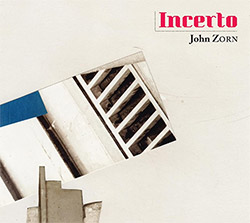

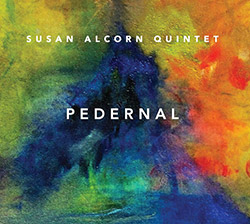
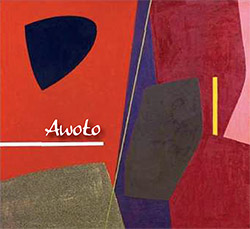


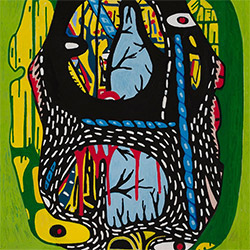
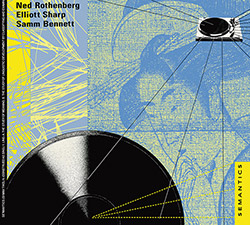
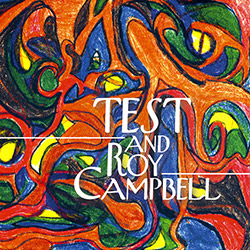
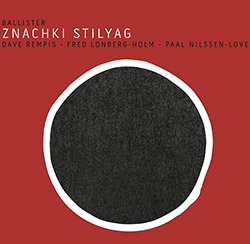
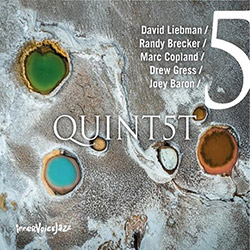
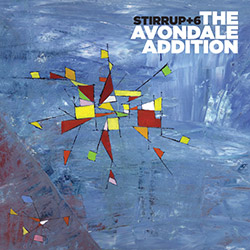
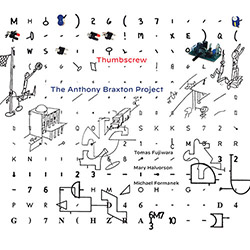
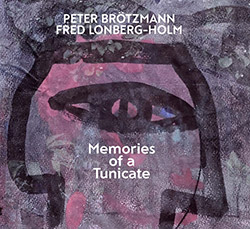
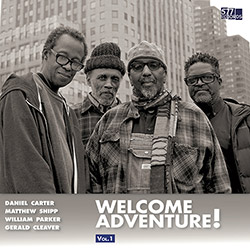
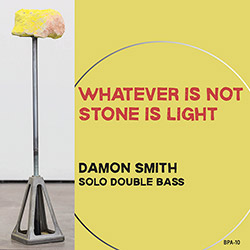
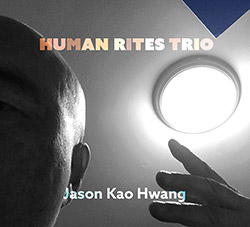
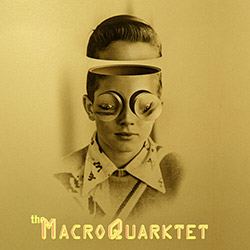
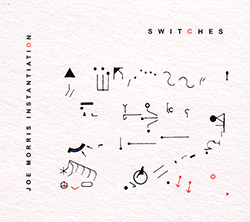
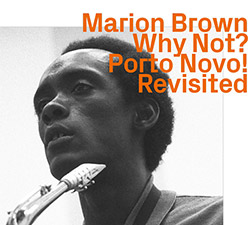
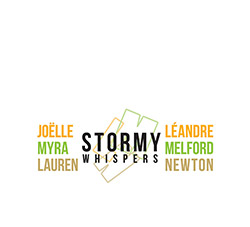
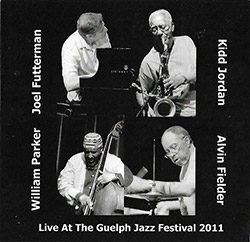
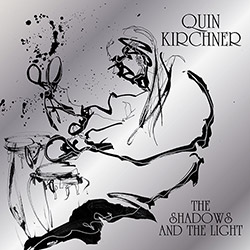


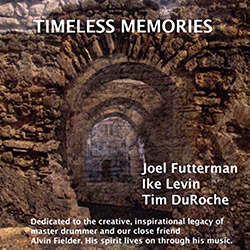










![Deupree, Jerome / Sylvie Courvoisier / Lester St. Louis / Joe Morris: Canyon [2 CDs]](https://www.teuthida.com/productImages/misc4/36404.jpg)


![Eternities: Rides Again [CASSETTE]](https://www.teuthida.com/productImages/misc4/36247.jpg)

![Lopez, Francisco: Untitled (2021-2022) [2 CDs]](https://www.teuthida.com/productImages/misc4/36438.jpg)




![Eventless Plot | Haarvol: The Subliminal Paths [CASSETTE + DOWNLOAD]](https://www.teuthida.com/productImages/misc4/36232.jpg)












![Eventless Plot | Francesco Covarino: Methexis [CASSETTE + DOWNLOAD]](https://www.teuthida.com/productImages/misc4/36231.jpg)



![Das B (Mazen Kerbaj / Mike Majkowski / Magda Mayas / Tony Buck): Love [VINYL]](https://www.teuthida.com/productImages/misc4/36329.jpg)



![Hemphill Stringtet, The: Plays the Music of Julius Hemphill [VINYL]](https://www.teuthida.com/productImages/misc4/36409.jpg)



![Halvorson, Mary Septet: Illusionary Sea [2 LPS]](https://www.teuthida.com/productImages/misc4/17952.jpg)






![Money : Money 2 [2 CDs]](https://www.teuthida.com/productImages/misc4/35894.jpg)




![Klinga, Erik: Elusive Shimmer [VINYL]](https://www.teuthida.com/productImages/misc4/36258.jpg)
![CHANGES TO blind (Phil Zampino): Volume 9 - I Wave on a Fine Vile Mist [CD + DOWNLOAD]](https://www.teuthida.com/productImages/misc4/36061.jpg)

![Wallmart / Rubbish: Asset Protection [split CD]](https://www.teuthida.com/productImages/misc4/35900.jpg)


![+Dog+: The Family Music Book Vol. 5 [2 CDs]](https://www.teuthida.com/productImages/misc4/35897.jpg)
![Kuvveti, Deli : Kuslar Soyledi [CASSETTE w/ DOWNLOAD]](https://www.teuthida.com/productImages/misc4/36107.jpg)

![Nakayama, Tetsuya: Edo Wan [CASSETTE w/ DOWNLOAD]](https://www.teuthida.com/productImages/misc4/36105.jpg)




![Yiyuan, Liang / Li Daiguo: Sonic Talismans [VINYL]](https://www.teuthida.com/productImages/misc4/35957.jpg)
![Brown, Dan / Dan Reynolds: Live At The Grange Hall [unauthorized][CASSETTE]](https://www.teuthida.com/productImages/misc4/36245.jpg)








![Palestine, Charlemagne / Seppe Gebruers: Beyondddddd The Notessssss [VINYL]](https://www.teuthida.com/productImages/misc4/36206.jpg)
![Palestine, Charlemagne / Seppe Gebruers: Beyondddddd The Notessssss [NEON GREEN VINYL]](https://www.teuthida.com/productImages/misc4/36207.jpg)

![Laubrock, Ingrid: Purposing The Air [2 CDs]](https://www.teuthida.com/productImages/misc4/35639.jpg)

![Yoko, Ono / The Great Learning Orchestra: Selected Recordings From Grapefruit [2 CDs]](https://www.teuthida.com/productImages/misc4/35841.jpg)









![Zorn, John / JACK Quartet: The Complete String Quartets [2 CDs]](https://www.teuthida.com/productImages/misc4/35609.jpg)

![Lonsdale, Eden: Dawnings [2 CDs]](https://www.teuthida.com/productImages/misc4/35480.jpg)



![Sorry For Laughing (G. Whitlow / M. Bates / Dave-Id / E. Ka-Spel): Rain Flowers [2 CDS]](https://www.teuthida.com/productImages/misc4/35985.jpg)

![Rolando, Tommaso / Andy Moor : Biscotti [CASSETTE w/ DOWNLOADS]](https://www.teuthida.com/productImages/misc4/36106.jpg)


![Electric Bird Noise / Derek Roddy: 8-10-22 [CD EP]](https://www.teuthida.com/productImages/misc4/35970.jpg)








![Elephant9 : Mythical River [VINYL]](https://www.teuthida.com/productImages/misc4/34624.jpg)



![Elephant9 with Terje Rypdal: Catching Fire [VINYL 2 LPs]](https://www.teuthida.com/productImages/misc4/35355.jpg)
![Deerlady (Obomsawin, Mali / Magdalena Abrego): Greatest Hits [VINYL]](https://www.teuthida.com/productImages/misc4/34876.jpg)







![Surplus 1980: Illusion of Consistency [CD]](https://www.teuthida.com/productImages/misc4/35069.jpg)
![Staiano, Moe: Away Towards the Light [VINYL + DOWNLOAD]](https://www.teuthida.com/productImages/misc4/35037.jpg)
![Coley, Byron: Dating Tips for Touring Bands [VINYL]](https://www.teuthida.com/productImages/misc4/17906.jpg)

![Lost Kisses: My Life is Sad & Funny [DVD]](https://www.teuthida.com/productImages/misc4/lostKissesDVD.jpg)